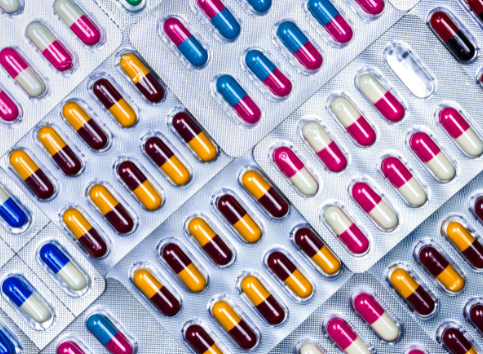What is drug resistance?
Published Jan 26, 2024 • By Carenity Editorial Team
Antibiotic resistance or chemoresistance (in other words, resistance to antibiotics or chemotherapy) are often discussed in the media. Drug resistance in general is a gradual reduction in a drug's effectiveness.
But what exactly is drug resistance? What causes it? And how can it be avoided?
We explain it all in our article!

What is drug resistance?
Drug resistance means that a medication which should have a therapeutic effect for which it was marketed, does not work.
There are 2 types of drug resistance:
- Primary: the medication does not work from the beginning of treatment.
- Secondary: at the start of treatment, the medication works well, but after a certain period of time, it is no longer effective.
Drug resistance can affect many therapeutic classes of medications. Most frequently cited and monitored by the World Health Organization (WHO) is:
- drug resistance in antimicrobials (e.g. antibiotics against bacteria; in this case it is known as antibiotic resistance),
- drug resistance in anti-epileptic treatments,
- drug resistance in treatments for depression,
- drug resistance to chemotherapy, known as chemoresistance.
What are the causes of drug resistance?
The causes of drug resistance depend on the drug class of the medication.
In the case of antimicrobial resistance, which is closely monitored by the WHO, the resistance of bacteria or viruses to medications is generally explained by internal changes, called mutations, happening in micro-organisms, that enable them to adapt and thus resist these medications. The resistance of micro-organisms to drugs is often correlated with the frequency with which these drugs are used: pathogens get used to them and eventually find a way to resist them, especially if the drugs are used incorrectly.
How can drug resistance be avoided?
In order to avoid the various types of drug resistance, there are some simple things you can do. For example, to avoid developing resistance to antibiotics, you must strictly follow the recommended duration of treatment, even if the symptoms have disappeared.
Another example concerns drug resistance to antidepressants. According to health authorities, depression is considered to be drug-resistant when at least two well-conducted treatments have failed to improve symptoms. This means that compliance - i.e. the ability to follow one's treatment plan properly - is essential to avoid any form of drug resistance. A drug can only be defined as non-functional if it has been properly taken.
Take care!
Comments
You will also like

What are the dangers associated with the over-the-counter sale of certain medicines?
Dec 19, 2020 • 6 comments

 Facebook
Facebook Twitter
Twitter

